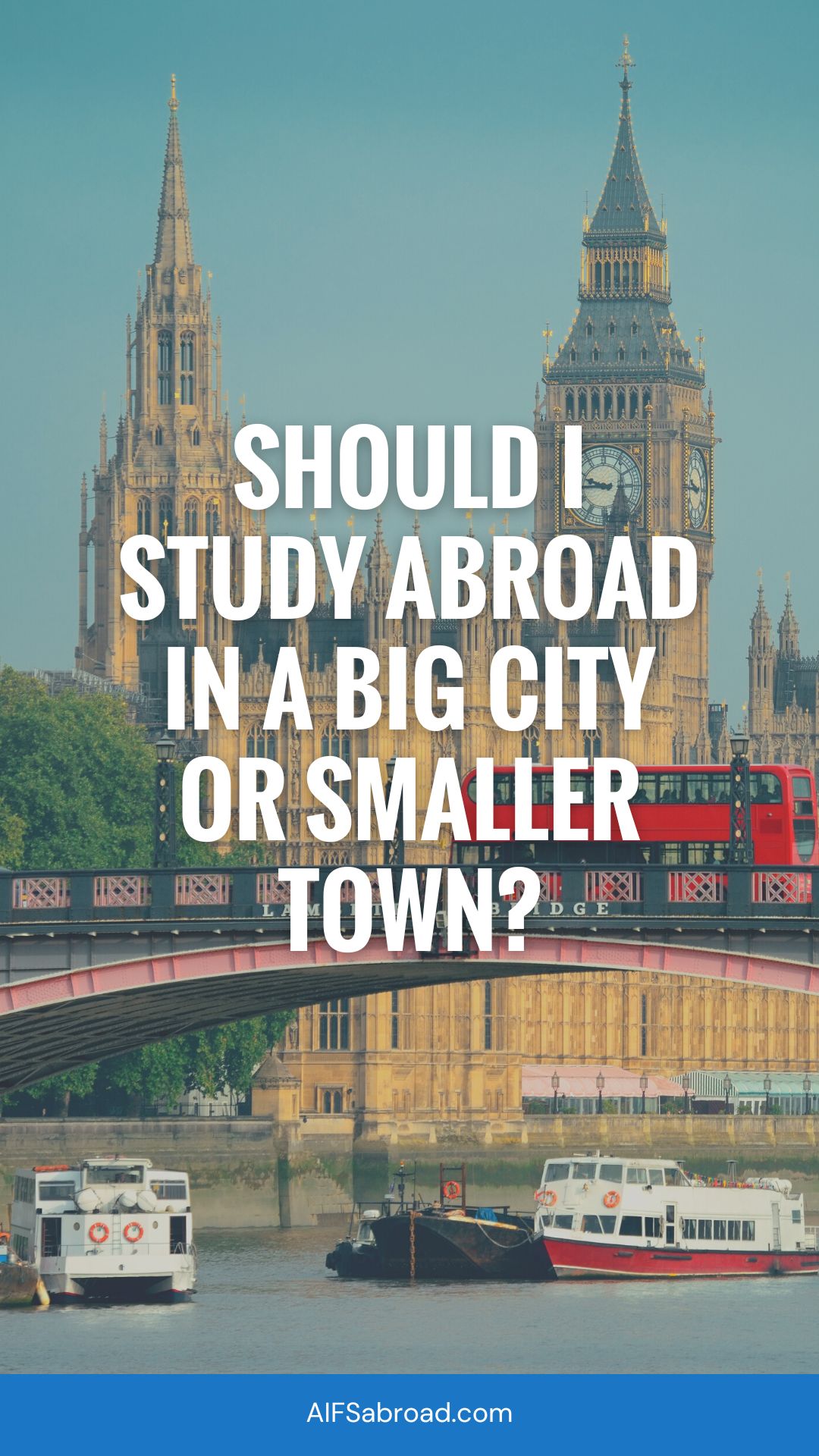The decision to study abroad in a big city or a smaller town ultimately depends on your personal preferences and goals. Both options offer unique advantages and disadvantages, and it’s essential to weigh them carefully to ensure that you make the right choice for you. By doing your research, considering your priorities, and talking to others who have studied abroad, you can make an informed decision that will help you achieve your academic and personal goals.
Studying Abroad in a Booming Metropolis
Top Perks:
- Networking opportunities galore
- Shopping and entertainment options
- Often a more diverse population
For some, the allure of big-city life is hard to resist. The idea of studying abroad in the center of a bustling metropolis with endless opportunities to explore is a dream come true. If you enjoy the hustle and bustle of city life and want access to a wide range of cultural and social opportunities, then studying in a big city may be the right choice for you. Cities often have a diverse population, making it easier to meet people from different backgrounds and cultures. Plus, larger cities tend to offer more opportunities for internships, which could be beneficial if you’re interested in interning while you’re abroad.
In Wyoming, there is little to no public transportation; there’s certainly no subway. Now, each morning I take a train three stops, then a bus five stops, in order to get to school... It’s also more environmentally friendly, as opposed to each individual driving their own vehicle everywhere.
Taylor M., AIFS Abroad in Berlin, Germany alum (2019)
Recommended Big Cities for Studying Abroad:

Studying Abroad in a Small City or University Town
Top Perks:
- Usually more affordable than major cities
- Feels like a community
- Close to nature
If you prefer a quieter and more laid-back environment, then studying abroad in a smaller town may be a better fit. Smaller cities and towns typically offer a tighter-knit community, which can help you make friends quickly and feel more connected to your surroundings. You may also find that the cost of living is lower in smaller towns, which can be an important consideration if you’re on a budget. Some students find that the slower pace of life can also help them focus on their studies, without the distractions of big-city life.
“If you want to experience the highest degree of cultural immersion possible, I recommend that you consider studying in a smaller city. You will get to mingle with the locals, try the best of the best food, and practice your language skills in the most authentic setting possible.”
Taylor D.V., AIFS Abroad in Salamanca, Spain alum (2018)
Recommended Smaller Cities and Towns for Studying Abroad:
- MAYNOOTH, Ireland
- SALZBURG, Austria
- SALAMANCA, Spain
- STELLENBOSCH, South Africa
- GRENOBLE, France
- LIMERICK, Ireland

Final Thoughts: Small Town vs. Big City Study Abroad
One of the most significant differences between studying in a large city and a small town is the lifestyle. In a big city, you can expect a fast-paced lifestyle, with access to a variety of entertainment options, cultural events and nightlife. On the other hand, more rural areas can offer you a more relaxed, slower pace of life, where you can enjoy the outdoors, community events and a stronger sense of community.
Ultimately, it’s important to weigh the pros and cons of each option and think about what matters most to you. You may also want to consider factors such as the availability of courses and programs that interest you, the climate of the area and the accessibility of transportation options.

